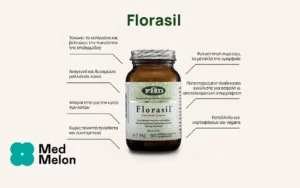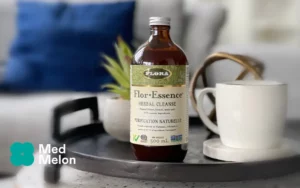Scientific Names of Lemongrass: Cymbopogon citratus L. [Fam. Gramineae]
Forms:
Lemongrass tea; alcohol extracts of lemongrass; lemongrass oil
Traditional Usage:
– Antibacterial
– Antifungal
– Antioxidant
– Antiseptic (externally)
– Antispasmodic
– Bone and Joint Pain
– Carminative
– Cough
– Cold
– Colic
– Diarrhea
– Digestive Cramps
– Digestive Disorders
– Diuretic
– Dyspepsia
– Edema
– Fever
– Flatulence
– Gastrointestinal Disorders
– Gingivitis
– Headaches
– Hyperglycemia
– Muscle Soreness
– Nervous Conditions
– Ophthalmia
– Pneumonia
– Poultice
– Stiffness
– Stomachaches
– Taste Enhancer
– Urinary System Conditions
– Vascular Disorders
– Water Retention
Overview:
Lemongrass, Cymbopogon citratus (DC. EX NEES) STAPF and other Cymbopogon species [Fam. Gramineae], is a tall, coarse grass with a strong lemon taste used for cooking, medicinal teas and potpourri. Lemongrass stalks are commonly used in the cuisines of Africa, the Middle East and Southeast Asia. Cymbopogon citratus, otherwise known as West Indian lemongrass, is native to Sri Lanka and South India and is now widely cultivated in the tropical areas of America and Asia. Its oil is used as a culinary flavoring, a scent and medicine. A tea made from the leaves of West Indian lemongrass has been used to treat fevers, colds and upset stomachs. Lemongrass is also a folk remedy for coughs, consumption, elephantiasis, flu, gingivitis, headache, leprosy, malaria, ophthalmia, pneumonia and vascular disorders. Lemongrass is principally taken as a tea to remedy digestive problems, diarrhea and stomachache. It relaxes the muscles of the stomach and gut, relieves cramping pains and flatulence and is particularly suitable for children. In the Caribbean, lemongrass is primarily regarded as a fever-reducing herb. It is also applied externally as a poultice or as diluted essential oil to ease pain and joint stiffness. Lemongrass is also used as an herbal medicine to treat bacterial and fungal infections, nervous conditions, and inflammation (pain and stiffness). The tea has diuretic properties and can help with urination difficulties and water retention. Lemongrass oil is also popularly used as a massage oil to relieve sore muscles. Research on lemongrass has shown that the extract of Cymbopogon citratus Stapf, extracted with 80% ethanol, has antimutagenic properties towards chemical-induced mutations in Salmonella and E. coli strains in a dose-dependent manner. C. citratus is also said to improve the functioning of the liver and reduce hyperglycemia through effects on the pancreas, although these claims have not been substantiated.
Active Ingredients:
Lemongrass contains: 0.2-0.4% essential oil; acetone; 4.3% ash; 3.7% calcium; alpha-camphorene; caprylic acid; caryophyllene; ceryl alcohol; chromium; 1,8-cineole; 0.1-0.34% citral; citronellal; citronellic acid; cobalt; cymbopogone; cymbopogonol; citrolnellol; 0.02% cymbopogonol (leaf wax); decanal; n-Decylaldehyde; diacetyl; dihydropsuedoionone; dipentene; farnesal; farnesol; 7.1% fat; furfural; geranic acid; geraniol; geranyl acetate; hexacosanol; iron; isopulegol; isovaleraldehyde; isovaleric acid; limonene; l-linalool; linalyl-acetate; luteolin; luteolin glycoside; magnesium; manganese; methyl heptenol; methyl heptenone; myrcene; neral; nerol; 2.1% phosphorus; alpha pinene; 2.3% potassium; 8.2% protein; quercetin; rutin; saponin; selenium; silicon; beta-sitosterol; sodium; alpha-terpineol; tin; triacontanol; zinc. Fresh lemongrass contains approximately 80% water.
Suggested Amount:
Lemongrass can be taken as a tea with the recommended dosage of a warm cup of tea taken one to four times a day between or after meals, or as required. The infusion of coarsely cut or powdered grass is made using 2g of herb material to one cup of boiling water. The boiling water is poured over the herb material and extracted for 5-10 minutes and then strained. For hyperglycemia, dry extracts are recommended with the dosage of 80mg daily, taken in combination with other botanical extracts to support proper blood glucose levels.
Drug Interactions:
None known
Contraindications:
Due to insufficient safety data in humans, lemongrass is not recommended for pregnant or lactating women without prior consultation of your physician.
Side Effects:
Lemongrass may produce allergic reactions in susceptible persons. Stop taking lemongrass if you experience skin hives, rash, itchy or swollen skin, breathing problems, tightness in your throat or chest or chest pain.
References:
Carlini EA, Contar J de DP, Silva-Filho et al. 1986. Pharmacology of lemongrass (Cymbopogon citratus Stapf). I. Effects of teas prepared from the leaves on laboratory animals. J Ethnopharmacol 1986; 17(1): 37-64.
Duke JA. 1992. Handbook of Phytochemical Constituents of GRAS Herbs and Other Economic Plants. CRC Press, Boca Raton, FL, pp. 216.
Melo SF, Soares SF, da Costa RF, da Silva CR, de Oliveira MB, Bezerra RJ, Caldeira-de-Araujo A, Bernardo-Filho M. 2001. Effect of the Cymbopogon citratus, Maytenus ilicifolia and Baccharis genistelloides extracts against the stannous chloride oxidative damage in Escherichia coli. Mutat Res. 2001 Sep 20; 496(1-2): 33-8.
Souza Formigoni ML, Lodder HM, Gianotti Filho O et al. 1986. Pharmacology of lemongrass (Cymbopogon citratus Stapf). II. Effects of daily two month administration in male and female rats and in offspring exposed “in utero. J Ethnopharmacol 1986; 17(1): 65-74.
Vinitketkumnuen U, Puatanachokchai R, Kongtawelert P, Lertprasertsuke N, Matsushima T. 1994. Antimutagenicity of lemon grass (Cymbopogon citratus Stapf) to various known mutagens in salmonella mutation assay. Mutat Res. 1994 Nov; 341(1): 71-5.




